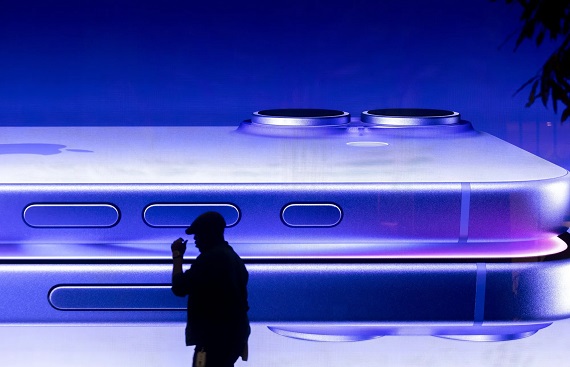Qualcomm Releases Data Showing Edge Over Apple C1 Modem

- Qualcomm-commissioned study finds its modems outperform Apple’s new C1 chip in urban 5G performance tests
- iPhone 16e lags in download and upload speeds, especially in dense city and indoor environments, study reports
- Apple aims to phase out Qualcomm modems despite performance gap, continuing push for in-house chip development
A study conducted for Qualcomm discovered that its modem chips performed better than a competing component made by Apple, particularly for cellular subscribers in big cities.
The iPhone 16e, which was the first phone based on Apple's own C1 modem, was slower in downloading and uploading data on New York City's T-Mobile 5G network compared to Qualcomm-driven Android phones, a Cellular Insights report said. Qualcomm commissioned the research and shared the results with Bloomberg.
Apple has taken years to develop the C1 chip as a replacement for Qualcomm chips, one part of a wider effort to swap out suppliers' components with homegrown technology. Modem chips, an essential element in any cellular phone, assist in connecting the phone to cell towers so users can make calls and receive internet data.
While the C1 phone was satisfactory under ideal circumstances, it fell short in "the very scenarios where next-generation modems are expected to excel," the report continued. "For users working in dense urban, indoor or uplink-intensive conditions, the advantages of improved 5G performance in the Android smartphones is not merely theoretical it is quantifiable, repeatable and operationally significant".
With reference to the report, Qualcomm is attempting a swipe at one of its largest clients. Apple has generated about 20 percent of Qualcomm's revenue over the years, and the chipmaker was the only modems provider for the iPhone series before the release of the 16e earlier this year. Apple, however, wants to introduce its in-house modems to other models in the future, replacing its long-time supplier.
Qualcomm informed investors that revenue from Apple modem sales will ultimately decline to zero, but that it will be able to make up that money by growing elsewhere.
Advertisement
Apple Chief Executive Officer Tim Cook said last week that the launch of the new phone has gone well and boasted of the component as the "the most energy-efficient modem ever in an iPhone".
In accordance with the research, two similarly priced Android phones that utilized Qualcomm components were 35% faster at downloading data and 91% faster at uploading information. This gap was even more pronounced when the network was congested or the phone was further away from a cell tower.
Advertisement
The report also stated that the iPhone turned "noticeably hot to touch and showed aggressive screen dimming within merely two-minute test periods". It didn't indicate whether consumers will be able to detect any decline in data communication in everyday usage. The report also didn't mention battery life issues.
Modems transfer information to the carriers' networks by way of radio waves, converting signals into voice and information within the phone. Signal boosting is a common method of enhancing a connection, something that consumes power and drains the battery.
Advertisement
Qualcomm has consistently contended that modem technology is harder to master than other chips. The firm claims to be a master at copying different network configurations and ensuring its components function in a vast number of conditions. Weather, skyscrapers and network traffic can all affect the performance of a phone.
Apple's modem push is only its most recent effort to bring more technology in house. From the company's Mac computers to its top-selling iPhones, all of them are powered by processors that it has designed itself. That provides it with a larger capability to tailor features and contain costs.

